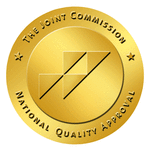It’s natural to sometimes feel sorry for ourselves, being that we’re occasionally going to experience some disappointments or setbacks in life. Why is it, then, that so many of us in recovery seem to get hung up on the emotion – at least now and then – and are subsequently a little bit reluctant to move out of our self-centered state?
Granted, most of us don’t have all that much difficulty with feeling sorry for ourselves. It may come and go, mostly without incident. Others, however, may tend to dwell just a little too long on the why’s and wherefore’s and why not’s and never quite get around to the actual remedy for self-pity, which is going out and doing something.
The truth is that we’re all equally capable of either feeling a moment of self-pity or getting stuck in it. The reason why most of us don’t remain stuck for too long is that we pull ourselves out of our morose thoughts and get busy doing the work of recovery.
In action, we don’t have the time for fixations on how bad we’ve got things, how much we’ve been wronged, why like has treated us so badly, who has caused us harm or had it out for us and more useless thoughts along those lines.
When we are busy, we have to keep our wits about us. Especially if we’re involved in an activity or task that demands our full concentration, it certainly wouldn’t do for our minds to be wandering or thinking up excuses for why we’re not accomplishing anything.
Well, we could allow our emotions to rule the day, to give in and let self-pity wash all over us, but then what would be the likely result? Generally speaking, it wouldn’t be all that good. If there is a good time for feeling self-pity, it’s probably when we aren’t tasked with a duty or engaged in an activity that requires a certain amount of productivity or results, as in our job, taking care of our children, driving a motor vehicle, performing an exacting skill such as welding or tree-trimming, or the like.
But there’s actually another very good reason to rid ourselves of the tendency to indulge in self-pity and that is that it can become a way of life. When we look for excuses to get us out of doing what we know we need to do, it’s a short journey to using such excuses for reasons not to go after things that we tell ourselves we really want. In other words, we close the curtain on our hopes and dreams, literally creating a black wall that keeps us further isolated and relegated to our constant churning of self-piteous thoughts.
This can also be bad for our physical health, not to mention stifling our creativity, jamming up our other emotions that are healthy and should be nurtured.
Suppose we want to overcome the habit of feeling sorry for ourselves? What can we do? Here are some suggestions:
- Recognize self-pity when it comes calling. It really isn’t that tough to identify. It’s when we start to feel like we’ve been wronged, hurt, that our chances have been minimized, that others have it better than we do, that we never seem to do anything right, that our chances for success are limited, and so on.
- Get busy taking some action. Once we know how to identify self-pity when it strikes or wants to take over our thoughts, have a list of actions that we can take immediately to help make it disappear. These should be actions that are readily available, don’t require a great deal of thought, and can be started almost anywhere, at anytime. Go for a walk. Rearrange the cupboards. Call a friend. Go to a 12-step meeting. Make a list of goals we want to achieve. As with strategies for overcoming cravings, getting ourselves out of a self-pity state of mind requires us to do something, not just sit around indulging in the emotion.
- Talk over workable solutions with our network. Undoubtedly there are others we know in the rooms of recovery who have also struggled with and learned how to overcome self-pity. Take the time to have a conversation with them about what worked best for them in getting past the self-destructive emotion. Adapt and modify their tips and techniques to suit our own circumstances until we arrive at what works well for us.
- Write down our feelings. Keeping a journal of what we’re feeling and when we feel it, as well as noting what situation or circumstance seemed to lead up to the feeling is often helpful in learning how to overcome it. It may not feel like it while we’re doing it, but later on, when we look back over our journal and reread what we’ve written, along with the subsequent entries on what we’ve done to overcome obstacles and hurdles in recovery, we’ll be able to see that we’ve been able to make substantial progress. This will serve to remind us that we can undertake difficult tasks and get past problems and issues with concerted effort, determination, hope and the support of our network of 12-step sponsor, fellow group me vmbers, our loved ones and family members.


 RSS Feed
RSS Feed
